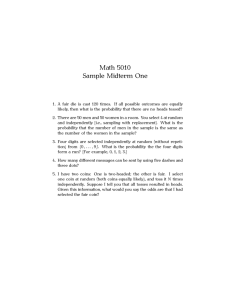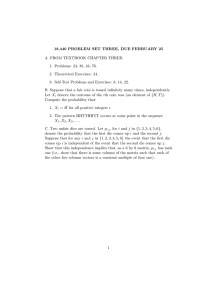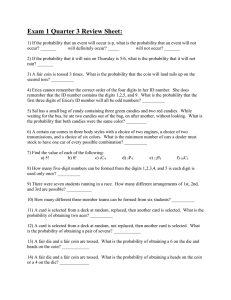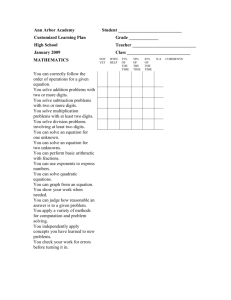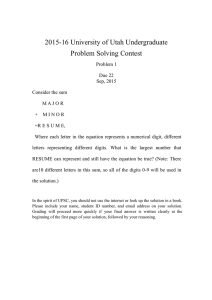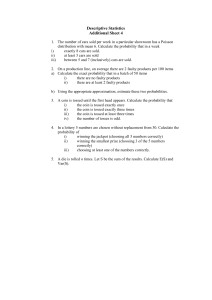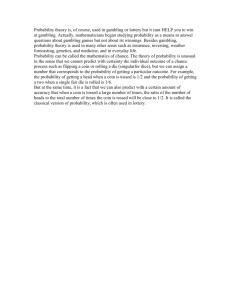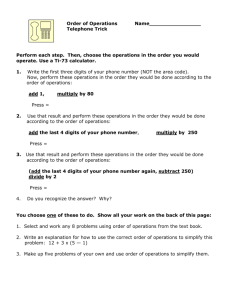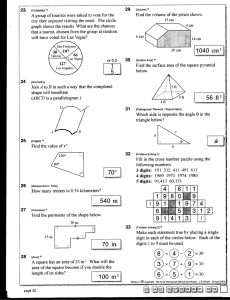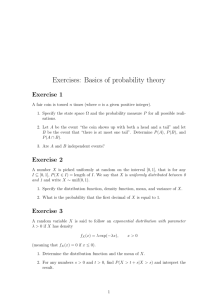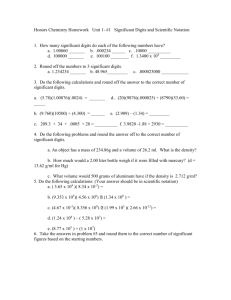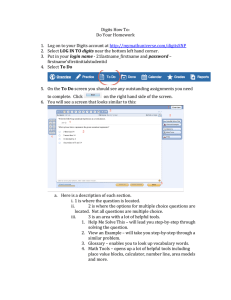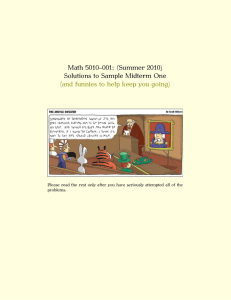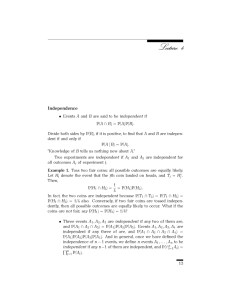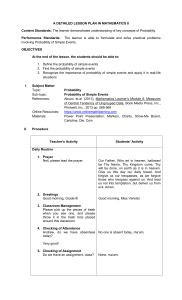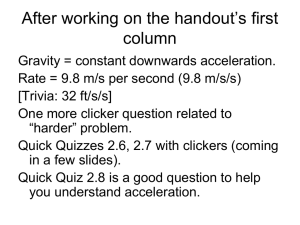Solutions to Midterm 1 Mathematics 5010–1, Summer 2009
advertisement
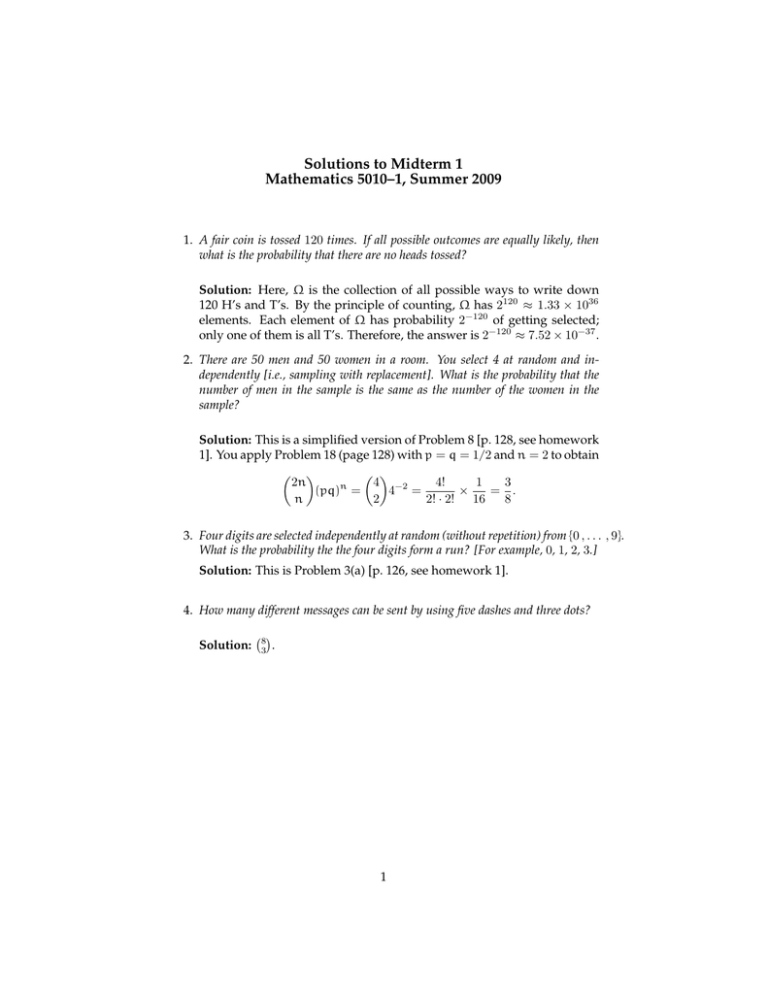
Solutions to Midterm 1
Mathematics 5010–1, Summer 2009
1. A fair coin is tossed 120 times. If all possible outcomes are equally likely, then
what is the probability that there are no heads tossed?
Solution: Here, Ω is the collection of all possible ways to write down
120 H’s and T’s. By the principle of counting, Ω has 2120 ≈ 1.33 × 1036
elements. Each element of Ω has probability 2−120 of getting selected;
only one of them is all T’s. Therefore, the answer is 2−120 ≈ 7.52 × 10−37 .
2. There are 50 men and 50 women in a room. You select 4 at random and independently [i.e., sampling with replacement]. What is the probability that the
number of men in the sample is the same as the number of the women in the
sample?
Solution: This is a simplified version of Problem 8 [p. 128, see homework
1]. You apply Problem 18 (page 128) with p = q = 1/2 and n = 2 to obtain
1
3
2n
4 −2
4!
×
= .
(pq)n =
4 =
2! · 2! 16
8
n
2
3. Four digits are selected independently at random (without repetition) from {0 , . . . , 9}.
What is the probability the the four digits form a run? [For example, 0, 1, 2, 3.]
Solution: This is Problem 3(a) [p. 126, see homework 1].
4. How many different messages can be sent by using five dashes and three dots?
Solution:
8
3
.
1
